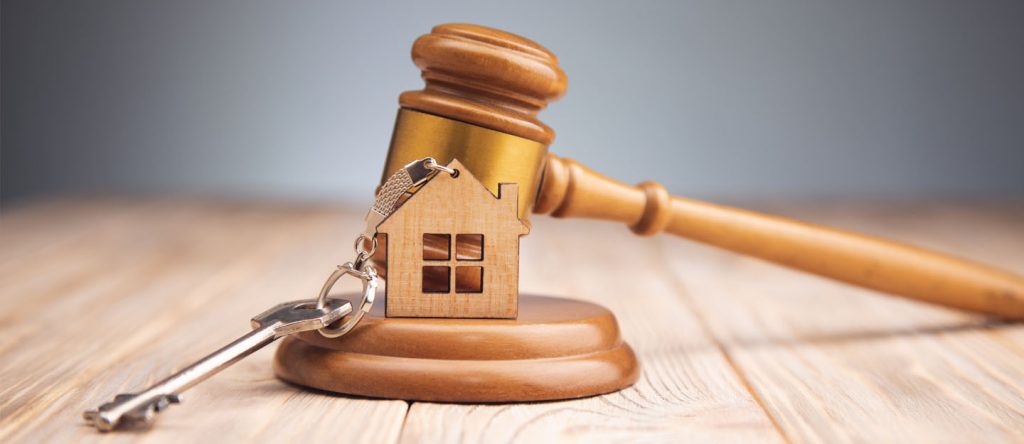Understanding Auction Terms in the UAE: Reserve Price, Hammer Price, and More
Are you thinking about placing a bid on a property at an auction in the UAE? That’s a terrific idea! But before you click “bid” or raise your paddle, you need to know how to take part in the auction.
If you’ve never been to a property auction before, words like “reserve price,” “hammer price,” and “buyer’s premium” could sound like hidden codes. But once you know how they work, you’ll be able to confidently and strategically move through the auction market.
This guide will help you with just that.
The Reserve Price: The Seller's Safety Net
First, let’s talk about the most crucial thing: the reserve price.
What it means: The lowest price the seller will accept. Even if you’re the highest bidder, the property won’t be sold if the bids don’t exceed this amount.
Why it matters: If the reserve isn’t fulfilled, you could be the highest bidder and still not get anything.
For example, a property has a beginning offer of AED 1.5 million, but the reserve is AED 1.9 million. If the bidding stops at AED 1.8 million, the seller can refuse to sell.
Tip: Reserve pricing is often hidden. However, platforms like Boli.ae gives indications through the “guide price” or opening bid range.
The Winning Number symbolizes the Hammer Price.
What it is: The final offer when the auction finishes, often known as the “hammer falls” price. This is the price of your purchase before any additional taxes or charges.
Why it matters: The hammer price informs you how much you owe, but it’s not the complete picture. There are often extra fees.
For example, you win an apartment valued at AED 950,000. That’s the price of a hammer. But with the buyer’s premium and DLD taxes, your final payment might be more than AED 1,000,000.
The Auctioneer's Cut: The Buyer's Premium
What it is: A fee that the buyer has to pay, usually a percentage of the hammer price. It pays for the auction site’s services.
Why it matters: This can surprise customers who are buying for the first time. It’s not included in your bid, but you’ll still need to pay it – on top of the hammer’s price.
Example: If you win a house for AED 2 million and the buyer’s premium is 2%, you’ll pay an extra AED 40,000.
However, Boli.ae doesn’t charge buyers any commission.
Vendor Bid / Seller Bid Yes, It Happens
What it is: An offer made by the seller (or their rep) to push up the price or signal that the reserve hasn’t been met.
Is it legal? Yes, but only if disclosed. Transparent platforms will disclose if vendor bids are authorized.
How to recognize it: A dramatic jump in bidding, frequently without a competitive bidder. Stay aware, and don’t get caught in a price trap.
Guide Price vs. Starting Bid
Guide Price
An approximate value to advise purchasers.
Not binding, and often below the reserve price.
Helps draw attention, but necessarily the minimum the seller will accept.
Starting Bid
The lowest amount you can start bidding with.
Can be well below the market value or reserve.
Tip: Don’t confuse recommended price with a discount. Use it as a benchmark — not a guarantee.
Bid Increment: Know the Jumps
What it is: The minimum amount for each new bid must increase by.
Example: If the increment is AED 10,000, and the current bid is AED 1.5 million, your next bid must be AED 1.51 million or more.
Why it matters: Strategy. Bidding too early or too fast can drive up prices unnecessarily. Smart bidders wait till the proper moment.
“As Is” Condition: No Surprises, Except There Might Be
What it means: The property is sold in its current state – with no promises from the seller.
You could notice complications after purchase, such as:
- Maintenance problems
- Unpaid service costs
- Structural issues
Tip: Do your due diligence before bidding. If inspections are allowed, take them seriously.
“Subject to Approval” Clauses
Sometimes, even after you win the auction, the deal isn’t 100% final. Why?
Because some sales are subject to approval – usually by the bank, court, or seller.
Why this matters: Winning the bid doesn’t always mean immediate ownership. Expect a brief waiting period for confirmation.
Deposits & Payment Terms
- Security Deposit: Required to register (typically 5–20%).
- Balance Payment: Typically, due between 10–30 days.
Legal & Transfer Fees
Your bid isn’t the end of the payment. Be prepared for:
- DLD Transfer Fee: 4% of the purchase price
- Trustee Fee: Usually AED 4,000–5,000
- VAT: 5% on commercial premises
- NOC/Service Charges: Varies by building and area
Real-World Scenario
You bid AED 950,000 on a studio in Dubai:
- Hammer Price: AED 950,000
- Buyer’s Premium (2%): AED 19,000
- DLD Transfer Fee (4%): AED 38,000
- Trustee/Admin Fees: AED 5,000
- Total: AED 1,012,000
Lesson? Always consider the extras – they need to add up or choose Boli.ae which doesn’t charge you 2% premium fee.
Tips to Master Auction Terms
- Study the auction documents before bidding. Every platform is different.
- Ask questions – genuine platforms like Boli.ae will provide you with full openness.
- Stick to your budget and determine genuine costs, not simply the price of the bid.
- Watch live auctions before participating to get a feel for the flow.
Understanding the key parameters of a UAE property auction provides you power — the power to bid intelligently, avoid surprises, and make informed investing choices.
Whether you’re buying your first apartment or hunting for a superb commercial unit, these auction phrases are your toolkit. Learn them. Use them. And when in doubt, count on reliable platforms like Boli.ae, where clarity and openness are part of the package.
Because in the auction world, understanding the terminology is just as crucial as having the biggest bid.
